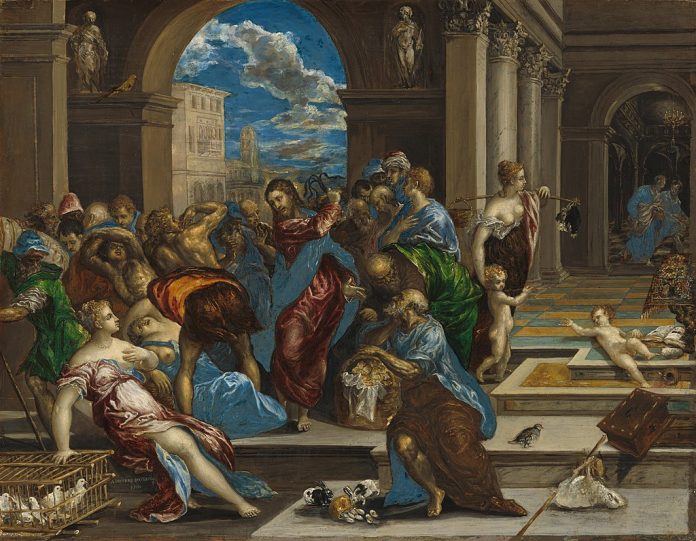Sam Kriss has an intriguing take on Bill Gates, and what being that rich – I mean, really, unimaginably rich – does to someone. As Alec Baldwin says in the film The Edge, ‘rich people are different’, which is sort of ironic, coming from him, but it’s an aphorism of which I have my own evidence in the very few really rich people I’ve met. Mr. Kriss claims that having billions – not just millions, which is rather humdrum as things go nowadays – means that one lives in an unreal realm disconnected from the hoi polloi, and from reality itself. Being able to do anything means, in the end, that one does nothing, or very little, and that one’s riches not only take over one’s life, but take on a life of their – its – own. There is a reason Christ warns about the dangers of riches.
Saint Thomas puts this in philosophical terms, distinguishing avarice – the unnatural desire for artificial wealth, or money – is different from greed, the immoderate desire for natural goods, such as food, or houses. For one thing, there is no natural limit to how much money one might have, and how many zeroes are at the end of one’s bank account(s). So it becomes all-consuming. But there is a natural limit to how much one might eat, or how many houses one can live in, or how many cars one might drive (I suppose that one could treat cars or houses as ‘money’, and not use them, in which case we’re drifting to avarice, and not greed).
Although he doesn’t quote Saint Thomas, Mr. Kriss agrees with him in essence, that avarice is more dehumanizing, leading to the diminution of one’s natural desires, and very personhood. In the ‘love of money’, one dreams of what one might do with all that moola, and ends up never really doing anything with it. An acquaintance once related that he was building a mega-mansion for a rich man, who could have gone anywhere, and eaten pretty much whatever delicacies he desired. Instead, he sat in his basement watching television, drinking Coors light and munching Doritos, like a drifting, cash-strapped college student. And we may read of much the same towards the end of the tragic life of figures such as Howard Hughes.
In Mr. Kriss’ view, it’s not so much Bill Gates doing all that bad stuff with his money, but the money itself, God-less Mammon, like some animated, anarchic blob. Money does as money does.
Yet I think that something is missing in Mr. Kriss’ take , whose premise is that Bill Gates has become a sort of blank cypher, with no nefarious or conspiratorial tendencies, such as, say, culling the world’s population by whatever insidious means are at his disposal; and there are, as we have seen, any number of those.
Two things we might say in response.
Mr. Gates, still a rational, sentient individual by all accounts, seems quite clear that he does think there are too many people on the planet, and would like to see that number greatly reduced. Hence, his zealous and very generous funding of contraception and abortion, especially in poorer nations.
Also, we should keep in mind that our battle is not against only earthly potentates, but ‘principalities and powers’, as Saint Paul warns, with the eschatological war between heaven and hell coalescing into this world. The devil is the ultimate force behind much of our current malice and mayhem, and he will use what instruments he can find, witting or unwitting. And there is that warning of Christ about ‘swept and empty rooms’, vapid souls just waiting for whatever haunted guests might happen by.










